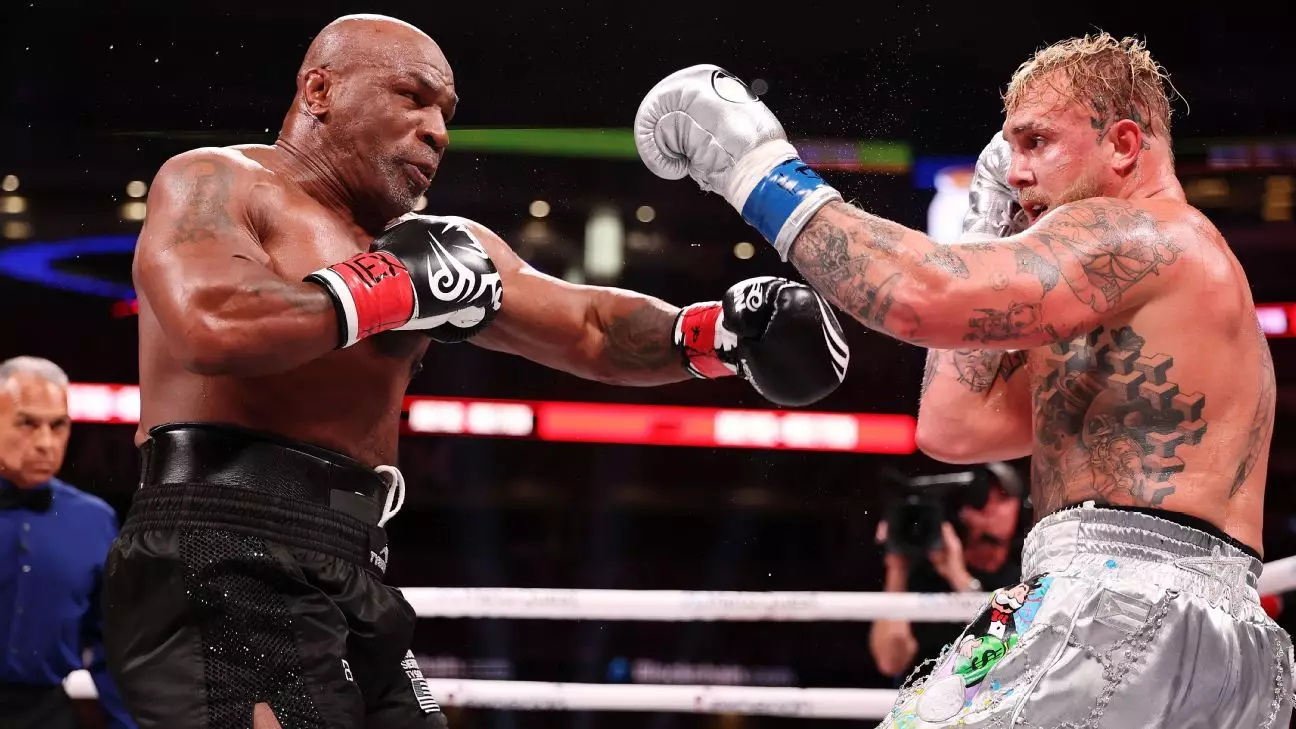The world of boxing has historically been dominated by legendary figures who have shaped the sport through sheer talent and grit. Yet, in recent years, the arrival of Jake Paul has challenged the traditional concept of what it means to be a boxer. At just 27 years old, Paul has become one of the most polarizing yet fascinating figures in combat sports, effectively transforming the sport into a spectacle that draws mass attention. Whether or not Paul should be regarded as a “real” boxer is a subject of debate, but his influence on boxing’s popularity is undeniable.
Paul’s latest fight against Mike Tyson, held at AT&T Stadium in Arlington, Texas, serves as a landmark moment in the evolution of Boxing as entertainment. This highly publicized matchup not only attracted over 72,300 live spectators but also generated a staggering $18.1 million in revenue, marking it as the single largest gate for any boxing or MMA event outside Las Vegas in U.S. history. Such figures illustrate that traditional metrics of success in boxing are being reevaluated against the backdrop of modern entertainment standards. The fight, which was coupled with the closely contested bout between Katie Taylor and Amanda Serrano, shows how Paul’s ventures are solidifying a new economic model for combat sports.
The event was promoted by Most Valuable Promotions and streamed live on Netflix, marking the platform’s entry into the realm of live sports. Despite facing streaming issues, 60 million households engaged with the event, showcasing Netflix’s potential to reshape sports broadcasting. The partnership between an athlete like Paul and a major streaming service indicates a significant shift in how sports content is consumed, reflecting the growing trend of digital platforms overtaking traditional pay-per-view models.
Jake Paul’s success has inadvertently created a ripple effect that extends beyond just boxing; it has implications for the entire sports industry. Following the triumph of the Paul-Tyson bout, Netflix witnessed a 2.8% spike in stock prices, highlighting the financial impact of integrating sporting events into streaming services. This business model may pave the way for more collaborations between athletes and streaming platforms, further changing the landscape of sports consumption.
In the aftermath of this event, the question emerges: what is next for combat sports? The success of the Paul-Tyson fight has set new benchmarks in terms of revenue and viewership, compelling promoters to adapt to this newfound landscape. Moreover, Netflix’s announcement of major future events, including halftime performances by stars like Beyoncé, indicates a deeper integration of entertainment and sports. As more athletes like Paul embrace the dual roles of entertainer and competitor, the essence of boxing and combat sports themselves could shift, turning them into hybrid spectacles that prioritize viewership and engagement over traditional accolades.
Jake Paul’s ascension as a boxing phenomenon is not merely a flash in the pan but a harbinger of significant changes in how the sport is perceived and marketed in the 21st century. As fans, athletes, and promoters adapt to this new reality, boxing may evolve in exciting and unpredictable ways, thanks to the groundbreaking efforts of figures like Paul.



Leave a Reply